"You are the belief in victory" was broadcast live from Studio S5 of Hanoi Radio and Television Station (PTTH) on Hanoi 1 channel, Hanoi On application and digital platforms of the station and Ho Chi Minh City Television Station (HTV1), Hai Phong City Press and Communications Center, Ha Tinh Newspaper, Ha Giang Newspaper, Hue Radio and Television Station, Lai Chau Radio and Television Station, Ninh Binh Radio and Television Station; Binh Phuoc Radio and Television Station and Newspaper..., and was also tested on Hanoi 2 channel in high definition, receiving positive feedback from the audience.
 |
Many famous songs about Uncle Ho have been performed emotionally by singers. |
"You are the belief in victory" is a profound gratitude from the capital Hanoi - where Uncle Ho lived and worked in the last 15 years of his life with many profound historical imprints. This is also a special art program expressing the spirit of Hanoi - a city of a thousand years of culture, the cultural and political center of the whole country, with the role of preserving and spreading Ho Chi Minh's ideological heritage.
The program opened with the famous symphony "The One Who Returns to Bring Joy" composed by musician Trong Bang in 1990 to celebrate the 100th anniversary of President Ho Chi Minh's birth. The work was written in the form of a sonata in F major and is one of the most successful instrumental pieces written about him.
 |
The program shows the affection of many generations for beloved President Ho Chi Minh. |
Continuing the artistic journey are works associated with each milestone in President Ho Chi Minh's life, from his childhood hometown of Lang Sen until he left Ben Nha Rong to begin his journey to find a way to save the country and returned to Pac Bo to lead the people of the whole country to make the August Revolution, establish the Democratic Republic of Vietnam and go through two resistance wars for independence, freedom and national unification.
Hanoi is also where Uncle Ho worked until the last years of his life, where the small stilt house, fish pond, and flower garden are still preserved - all of which have become living symbols of a pure, simple, but great lifestyle.
Each work in the program contributes to telling an unforgettable story about the beloved leader of the nation. Listening to the song "Uncle Ho's Sandals", the audience is not only moved by his simple image but also by real stories such as Uncle Ho wearing a pair of rubber sandals "made" from the tire of a French military vehicle that was burned by our army in Viet Bac. Uncle Ho wore those sandals for 11 years, the security officers "asked" to change the sandals a couple of times, but Uncle said "they can still be worn".
 |
The program features performances by many famous artists. |
During the program, the audience also enjoyed songs written with boundless love for Uncle Ho such as: "Uncle Ho, an immense love" (musician Thuan Yen), "Flowers in Uncle Ho's garden" (musician Van Dung), "Songs dedicated to Uncle Ho" (musician Trong Loan), "You are the belief in certain victory" (musician Chu Minh)... - songs that spoke for the feelings of millions of Vietnamese people sent to the beloved Father of the nation.
Interspersed with the songs are special reports about the birth of many famous musical works about Him, in which the song "Praise to President Ho Chi Minh" is the only song that musician Van Cao wrote about President Ho Chi Minh and was introduced by the musician on the occasion of his birthday in 1949. Immediately after that, the song received love and became one of the best songs written about Uncle Ho.
According to Mr. Van Thao, son of musician Van Cao, to compose the song, musician Van Cao went to many places in the Viet Bac resistance zone, met many people, talked to soldiers to feel the affection that everyone had for Uncle Ho. It was the sacred and respectful feelings of the people that urged the musician to quickly complete the song "Praise to President Ho".
The melody and opening lyrics of the song were inspired by the image of Uncle Ho reading the Declaration of Independence at Ba Dinh Square on September 2, 1945. At that time, musician Van Cao stood right below the stage with tens of thousands of compatriots looking up to the stage to listen to his every word.
Mr. Van Thao shared that in this song, musician Van Cao capitalized the word "Nguyen" to talk about Uncle Ho. From here, this title was popularized, becoming the sacred and solemn way that people called President Ho Chi Minh. When talking about Him, they were talking about Uncle Ho. This showed respect, closeness and considered Uncle Ho as the beloved father of all people, similar to the way Van Cao saw the father of the nation among the people.
 |
"He is the belief in victory" is like a vivid film about the life and career of the beloved leader of the nation. |
The report that moved and made the audience both emotional and proud was the song “Ballad Ho Chi Minh” (Song of Ho Chi Minh) - recounting the night of May 7, 1954, when the whole world was shocked by the victory at Dien Bien Phu. At the same time, at a Labor club in south London, British musician Ewan MacColl stepped on stage, holding a guitar and singing “Ballad of Ho Chi Minh” - a song praising the Vietnamese leader and also a revolutionary, a brilliant international communist soldier with a Saxon folk melody.
The entire auditorium was immersed in the sound of “Ho Chi Minh’s Song”. Every time Ewan MacColl finished singing a verse, the rows of seats filled with sailors, soldiers, workers, students and even some British parliamentarians… all shouted in unison: “Ho, Ho, Ho Chi Minh!”.
The song then spread throughout Europe, Asia, Latin America, and was translated into many languages. It is no longer just a song, but a living testament to the admiration that international friends have for Uncle Ho - a man who fought all his life for freedom and human dignity.
As the dedication quoted from a poem by an American poet: “There are things in life that cannot be changed/There are birds that never submit/There are names that live forever - Ho Chi Minh!”.
 |
The program was elaborately and carefully staged, attracting the attention of the audience. |
In the program, the children's medley with "Last night I dreamed of meeting Uncle Ho" (Xuan Giao), "Who loves Uncle Ho Chi Minh more than children" (Phong Nha) performed by the children of the Sao Tuoi Tho club and the Hanoi Radio and Television Orchestra, also brought a pure and emotional musical space.
"Singing in the Pac Bo Forest" (Nguyen Tai Tue), "Footprints in the Front" (Pham Minh Tuan - poem by Ho Thi Ca), "Song dedicated to Uncle Ho" (Trong Loan), "Ho Chi Minh is the most beautiful name" (Tran Kiet Tuong), "Uncle Ho, an immense love" (Thuan Yen)... each song in the program is a slice of history, a musical diary recording the ordinary yet great moments of President Ho Chi Minh.
Participating in the program are artists who have been associated with revolutionary music for many years: People's Artist Pham Phuong Thao with the profound "Listening to the boat singing at night, remembering Uncle Ho", "Uncle Ho's sandals"; Meritorious Artist Lan Anh with the graceful yet heroic "Singing in the Pac Bo forest"; Meritorious Artist Vu Thang Loi with the emotional "Front footprints", and the solemn "Ho Chi Minh, the most beautiful name"...
Participating in the program, artists Truong Linh, Pham Viet Tuan, Do To Hoa, Moc An, Sao Tuoi Tho club, Tre Dance Group... also sent the audience the most meaningful songs about Uncle Ho.
Under the arrangement of musician Thanh Vuong, familiar songs are renewed with a youthful, modern musical spirit, but still retain pure Vietnamese folk material - rustic, profound and close.
During the program, the audience had many emotional moments when watching valuable documentary reports about President Ho Chi Minh - from the journey of the young man Nguyen Tat Thanh leaving Ben Nha Rong in 1911 to find a way to save the country, to the years of wandering through many countries, living among the working people and persistently finding a way to liberate the nation.
 |
The program left many echoes, bringing deep and heroic emotions. |
Particularly touching are the footages recreating the moment when he returned to the Fatherland - from the Viet Bac resistance base to Hanoi, when he read the Declaration of Independence at Ba Dinh Square on September 2, 1945, giving birth to the Democratic Republic of Vietnam. And, there are also precious images of the last years of his life - simple in a small stilt house, leaving behind endless regrets in the hearts of the people of the whole country.
The program "You are the belief in victory" was performed by Hanoi Radio and Television - a pioneer in art programs bearing the mark of political commentary, deeply, thoughtfully and meaningfully.
The music, staging and performance were all carefully invested in a gentle and delicate storytelling style. The program ended, but the image of Ho Chi Minh's life, people and ideology still lingered, like a silent flame burning brightly in the hearts of every Vietnamese person.
Source: https://nhandan.vn/cam-xuc-dang-trao-trong-chuong-trinh-chinh-luan-nghe-thuat-nguoi-la-niem-tin-tat-thang-post881120.html


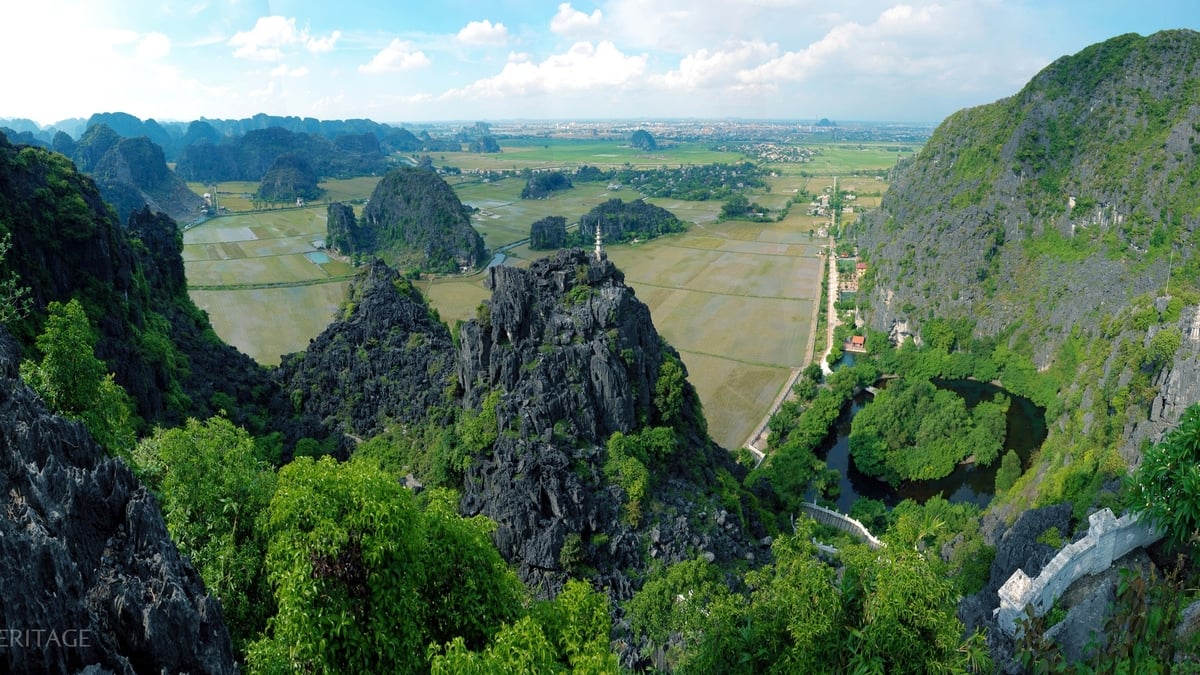


![[Photo] Prime Minister Pham Minh Chinh chairs a meeting on the implementation of the Lao Cai-Hanoi-Hai Phong railway project.](https://vphoto.vietnam.vn/thumb/1200x675/vietnam/resource/IMAGE/2025/5/20/0fa4c9864f63456ebc0eb504c09c7e26)


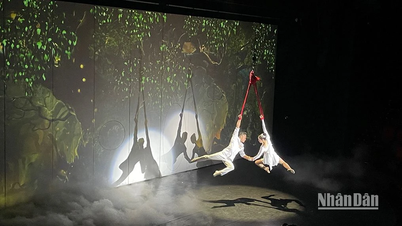
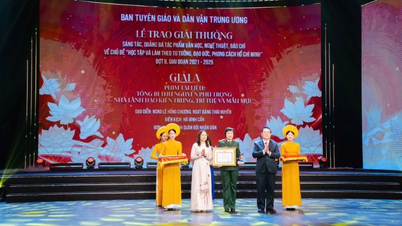
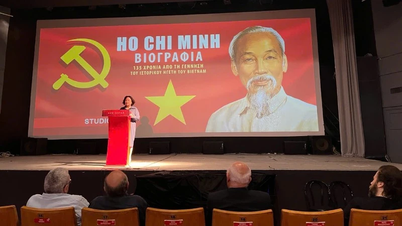
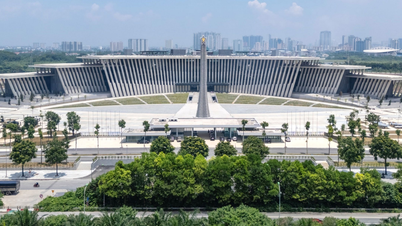

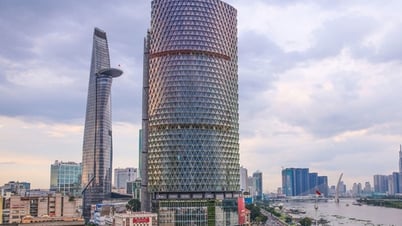

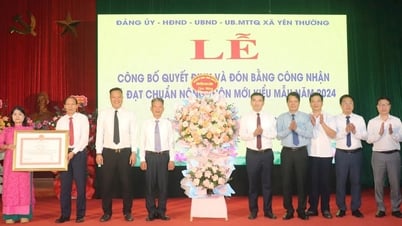








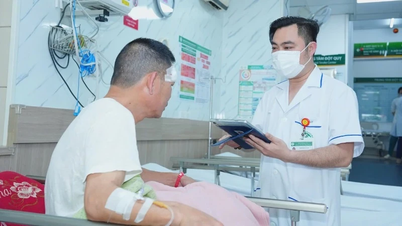
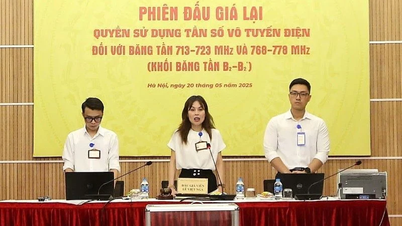
![[Photo] Prime Minister Pham Minh Chinh chairs a meeting on the implementation of the Lao Cai-Hanoi-Hai Phong railway project.](https://vphoto.vietnam.vn/thumb/402x226/vietnam/resource/IMAGE/2025/5/20/0fa4c9864f63456ebc0eb504c09c7e26)
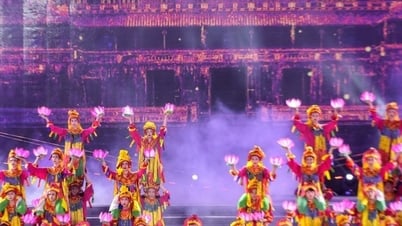




























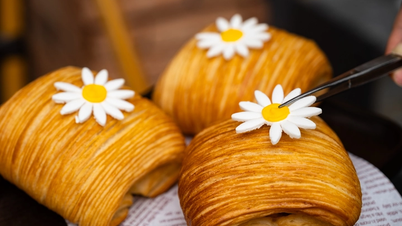
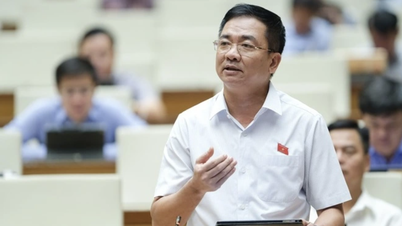
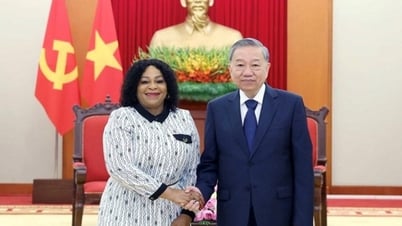

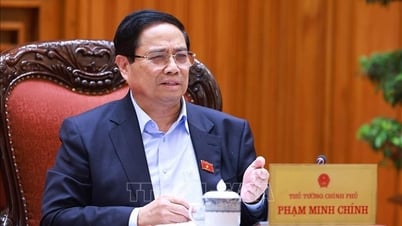

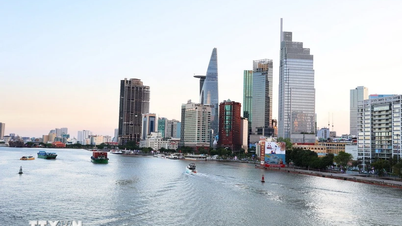
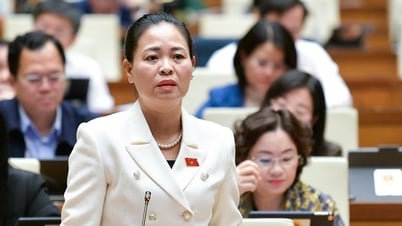

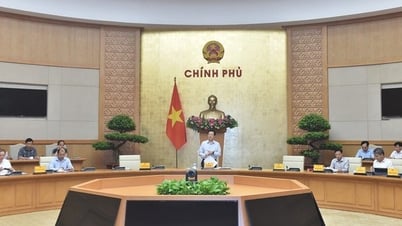

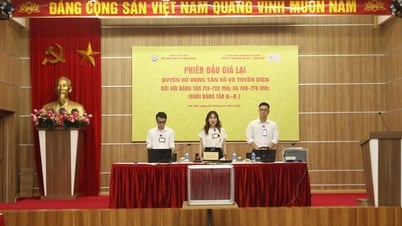

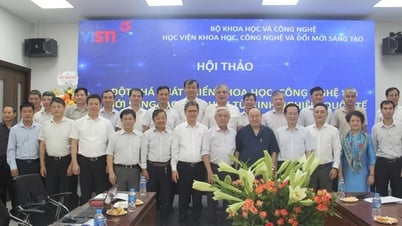
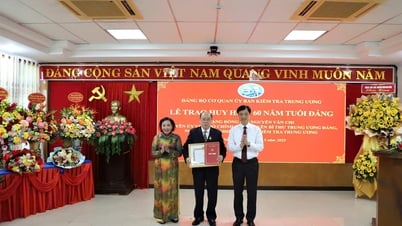

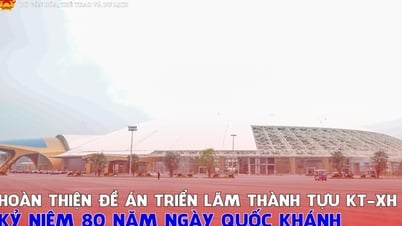
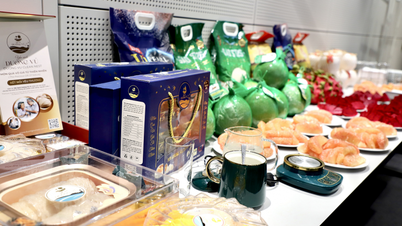

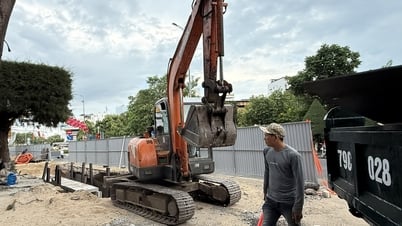

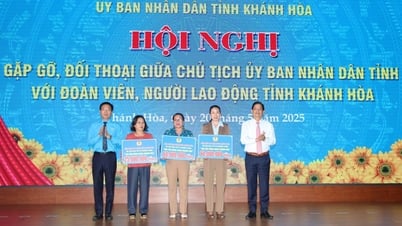
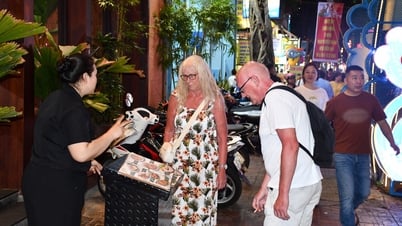
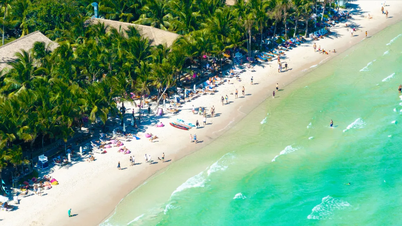

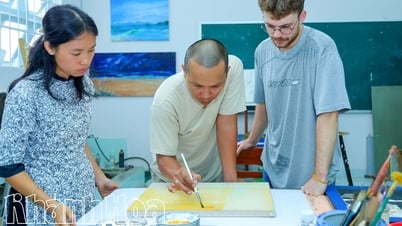
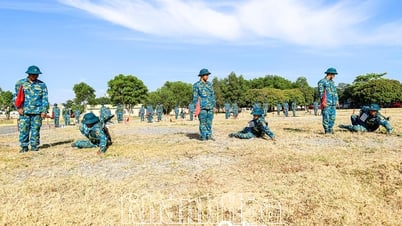












Comment (0)